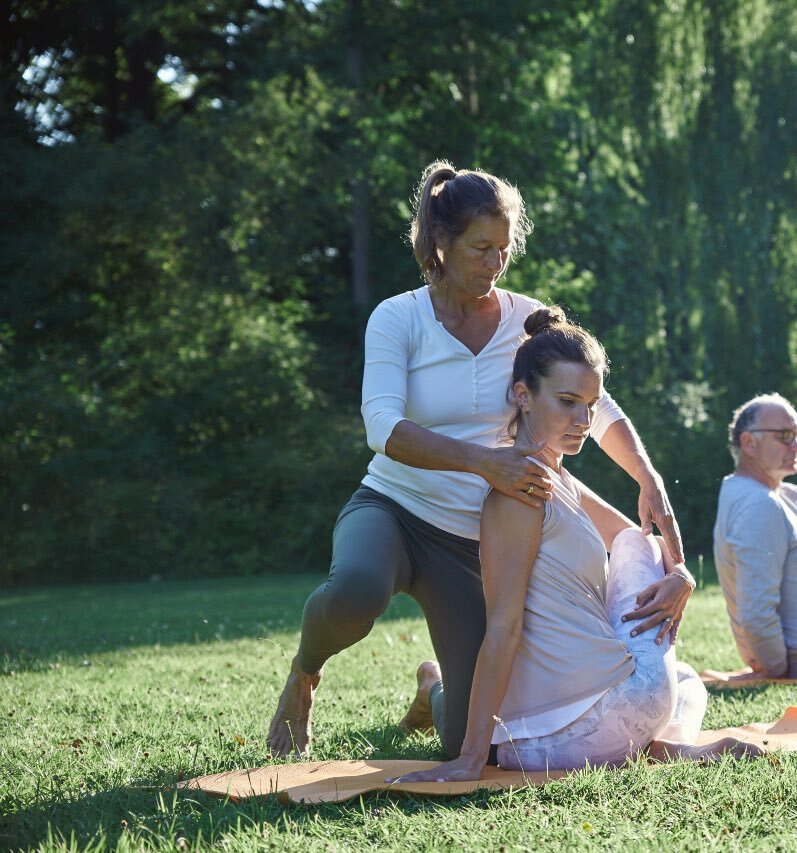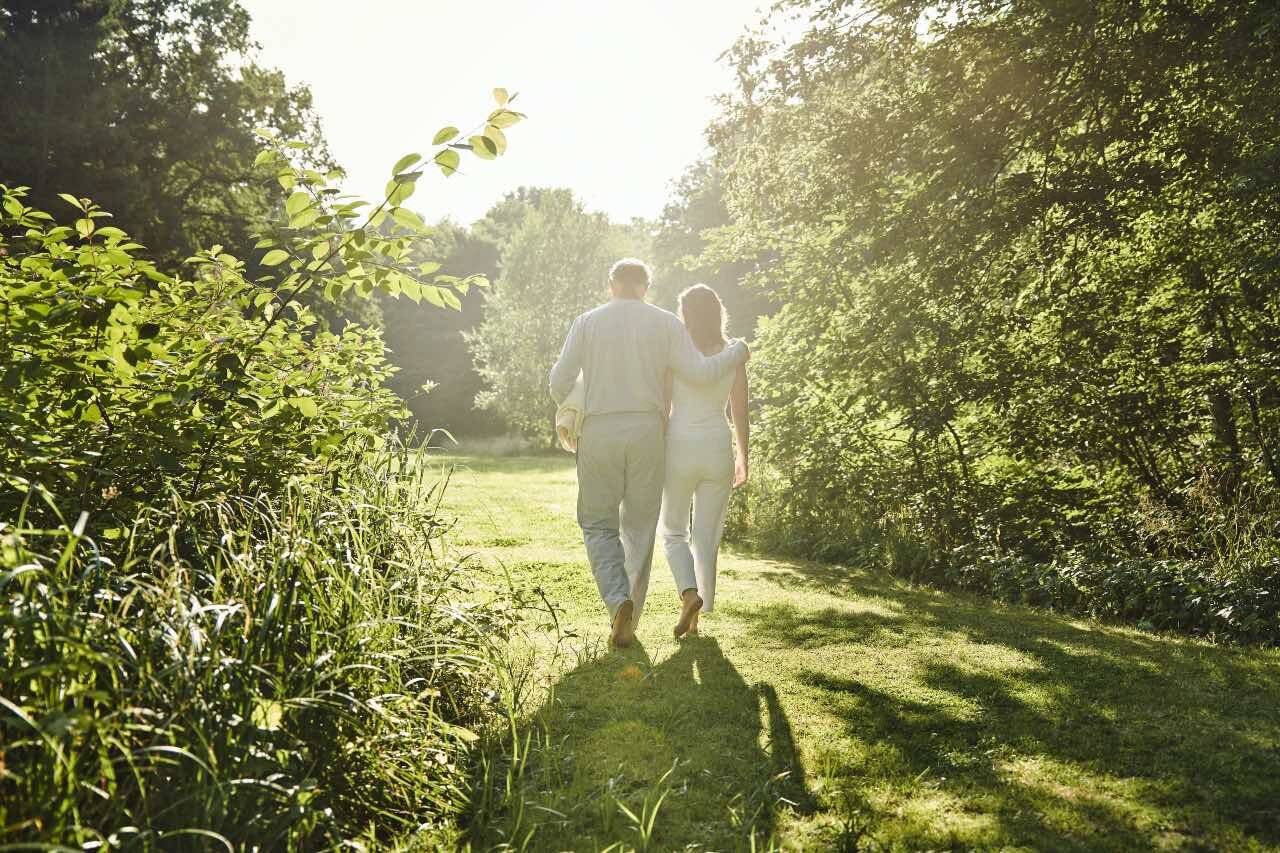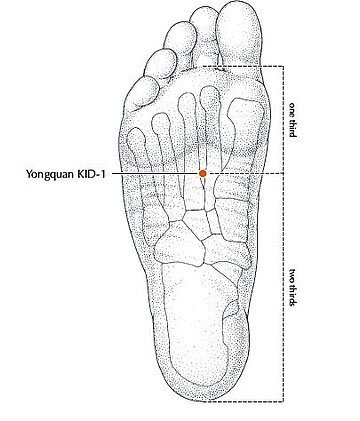WHY WE NEED TO CHANGE OUR HABITS THROUGH THE SEASONS!
Chinese Medicine & Ayurveda considers a seasonal routine an important cornerstone of health - all year round.
Seasons change….and our eating habits, lifestyle, physical activity and everything else needs to change accordingly. Simply because, our body is built in such a way that it responds to every season in a unique fashion. And we need to aid our body in doing so by adapting according to the needs of the season. When we fail to do so, that is when diseases come knocking.
According to Chinese Medicine, the season of Autumn is associated with the element of Metal, which governs organisation, order, communication, the mid, setting limits and protecting boundaries. It’s a good time to finish projects that you began in spring and summer. And of course, it’s also the perfect time to begin more introspective, indoor projects. During the summer, which is ruled by the fire element, we deal more with the external - travelling and playing outdoors. Autumn, on the other hand, is a time of organising your life for the winter season ahead and coming more inside your body and mind to reflect on your life.
The lung and large intestine are the internal organs related to Autumn and the Metal element. Lung is associated with the emotion of “letting go”. This process is difficult for those who love the summer. They find it hard to give up the long days of sunlight, warm temperatures and open windows. Others feel differently and love autumn, from the crisper air to the vivid red, orange and yellow leaves on the trees.
“Health should not be just the absence of disease, but the feeling of wholeness, balance and resilience”
HOW CAN I STAY HEALTHY THROUGH THE AUTUMN SEASON?
Autumn Season Exercise
The best time of day to exercise is the early morning and evening hours (6 - 10am and 6 -10pm). Consider slow, gentle, strengthening forms of exercise instead. Walking, hiking, swimming, biking, yoga and tai chi are good choices. Remember to balance your activity with adequate relaxation and sleep so that your tissues rejuvenate properly.
Autumn Season Yoga
Incorporating a sense of warmth, grounding, stability, and focus into your yoga practice has a profoundly calming effect on vata and can work wonders during vata season. Your breath should be deep and fluid. If you practice pranayama (yogic breathing exercises),Nasi Shodhana (Alternate Nostril Breathing) is very balancing this time of year. In your asana practice, favor vata-pacifying yoga. Warm up slowly and include some joint rotations. Move with intention and fluidity—grounding the hands and the feet on the mat whenever possible—and avoid jumping between postures. Gentle flows like a relaxed Sun Salutation are perfect for this time of year. You can also favour standing and balancing poses such as Mountain, Warrior 1, Warrior 11 and Tree pose to increase stability and strength. Connect with the earth beneath you in poses such asThunderbolt, Cat-cow, Cobra and Child’s Pose, and quiet the mind with forward bends such asIntense Westward Stretch. Gentle inversions and restorative poses such as Legs Up the Wall are also very good for this time of year. Close your practice with a long Savasana, covering yourself with a blanket so that you don’t get chilled.
Autumn Season Lifestyle Choices
One of the most effective ways to support your body is by establishing a daily routine. Try to do the same things (wake up, exercise, eat meals, go to bed, etc.) at roughly the same times each day. Set the tone for your day by rising early, taking full advantage of the silence, stillness, and peace that are intrinsic to the early morning hours. Then, you can calm your nervous system, awaken your tissues, and ground your energy by massaging your skin with warm, organic sesame oil.. Follow this practice with a warm, relaxing shower, leaving a coat of oil on the skin to absorb throughout the day. Some gentle yoga, and ten to fifteen minutes of meditation will further your sense of stability and wellness. If you enjoy a little fragrance, vetiver, geranium, and citrus essential oils are very appropriate this time of year. When you step out into the elements, cover your head and ears to protect them from the biting wind and cold.
Autumn Season Diet
Your diet is a powerful way to soothe the metal element this Autumn. In Traditional Chinese Medicine tradition, the flavour of Autumn is pungent and should be balanced with sour. This ensures the body's mucosa stays moist and warm—which prevents infection, without becoming too damp/cold—which causes congestion in the Lungs. Substantive, oily, nourishing foods that are high in protein, high in fat, brought to life with warming, stimulating spices, and served hot, will go a long way toward maintaining your internal reserves of moisture and keeping you grounded through the season. You’ll also want to favour the sweet, sour, and salty tastes. In general, eat mushy, soft foods and garnish them generously with ghee or oil. Breakfasts of cooked grains—like oatmeal, tapioca, cream of rice, are perfect at this time of year. Lunches and dinners that include steamed vegetables, hearty grains, soups, and stews are grounding and moisturising. If you eat meat and eggs, this is one of the best times of year to enjoy them. Dairy products and most nuts and seeds are also beneficial. In general, you’ll want to reduce your consumption of raw vegetables, cold and frozen foods, as well as the bitter, pungent, and astringent tastes. It is best to minimise light, cooling, and drying foods like broccoli, cabbage, cauliflower, sprouts, leafy greens, white potatoes, beans, popcorn, crackers, millet, and dried fruit. If you do eat these foods, eat them in moderation and make sure that they are soaked, well cooked, or served with ghee.
You may find that, during the course of the Autumn, you’ll naturally want to increase your intake of food. This season requires adequate nourishment so it is best to avoid fasting.
HERE ARE 5 WAYS TO LET GO THIS AUTUMN:
Breathe—wind is a key element in Autumn. Therefore, take the time to focus your deep breathing techniques as you become aware of that which needs to be released. Big exhales.
Purge—this will be unique to each individual, but if nothing else take the time to purge your closets of unused clothing. Not only will it free up more space, but those clothes will be deeply appreciated by those who need them this winter.
Resolve old hurts—what pains or hurt feelings can you release this Autumn? These unresolved emotions can express themselves as grief and negative self-image, leading to imbalance and illness of the Lungs and Large Intestine. Take advantage of Autumn's energy to let old wounds heal. Forgiveness allows us to release what we are holding onto, whether forgiving others or forgiving ourselves.
Give—this goes hand-in-hand with purging and resolving old hurts. Give away what you no longer need, and give yourself the gift of release and freedom that comes from forgiveness of self and others.
Sleep—if you think about it, the act of sleep is the ultimate way of letting go. Thanks to a special type of lymphatic system in the brain called The Glympathic System, sleep facilitates the cleansing and organisation of your brain. To keep things simple, aim to go to bed an hour earlier (the kids too) or, if your schedule permits, wake up an hour later.

































